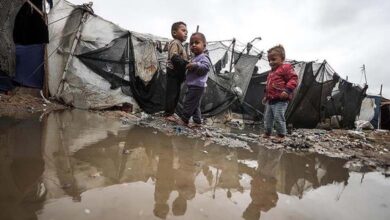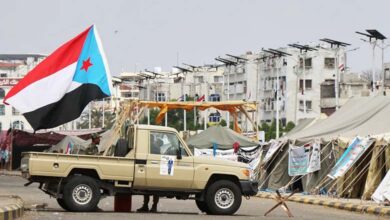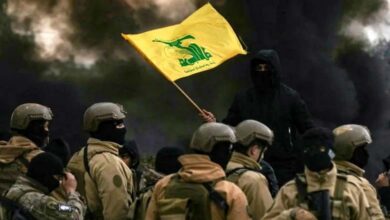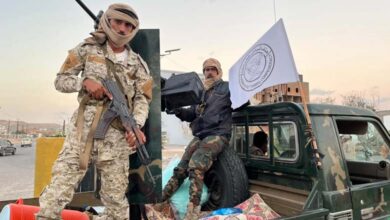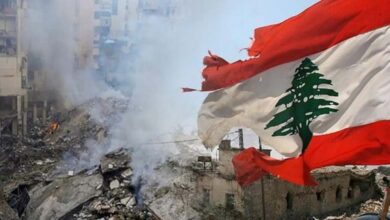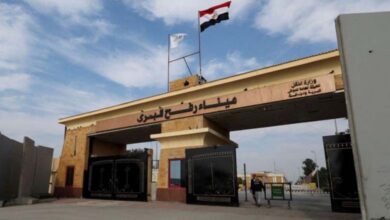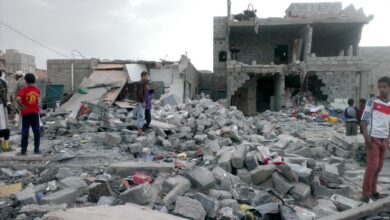11 years after Yemen’s Nakba: has the Houthi collapse begun?
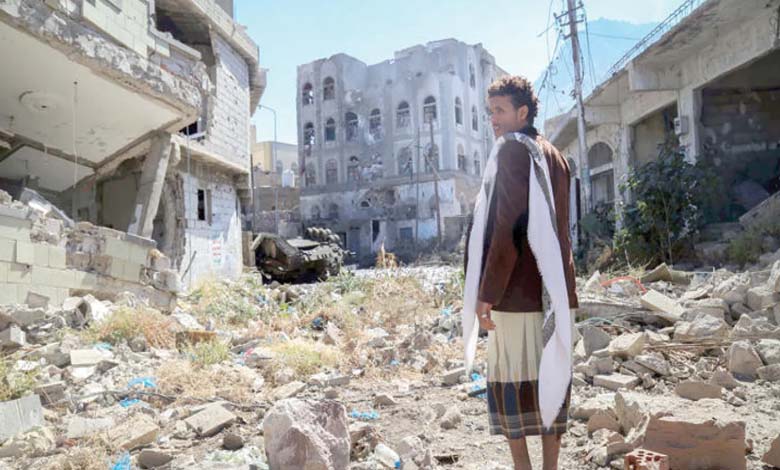
Eleven years after Yemen’s so-called “Nakba,” marked by the Houthis’ seizure of Sanaa in September 2014, the group now appears on the brink of collapse.
The Houthi militias are facing their darkest days: most of their leaders remain in hiding, fearing Israeli strikes, while the group has failed to form a government to administer the territories under its control, following the killing of many of its senior members in Israeli bombardments about a month ago.
-
Targeting the administrative front: painful scenarios for the future of the Houthis
-
Houthis follow al-Assad’s footsteps: Funding warfare through the Captagon trade
The fear of Israeli retaliatory raids, combined with earlier U.S. strikes and the designation of the group as a foreign terrorist organization, has paralyzed the Houthis both politically and economically.
The anniversary of this takeover, on September 21, coincides with a mass exodus of banks and organizations from Houthi-controlled areas to regions under the authority of Yemen’s internationally recognized government. This development, coupled with tough international sanctions, poses a serious threat to the group’s survival, observers say.
Some analysts predict that the Houthis may experience a “silent collapse,” with their grip gradually eroded by economic pressure and the eventual outcome of military confrontation.
-
Houthis escalate by targeting any company trading with Israel
-
Houthis Escalate Targeting of Religious Institutions: Abduction of Imams and Closure of Quranic Centers
The beginning of collapse
Yemeni military expert Brigadier General Abdulsamad al-Majzafi argues that this year’s anniversary comes as “the Houthis are living the beginning of their downfall, particularly since the world realized—after eight years of their excesses and provocations—that they constitute a threat to global peace, and began fighting them through various means.”
These measures, he explained, include classifying the group as a terrorist organization, cutting off financial resources, preventing the flow of hard currency into Houthi-controlled territories by relocating UN agencies and humanitarian organizations to Aden, along with banks and other institutions.
-
Houthis and the Muslim Brotherhood share sabotage roles in Aden… Details
-
Are the Houthis Risking the Ceasefire Agreement with Washington to Support Iran?
He added that “the isolation now surrounding the Houthis is evident and its consequences are starting to appear,” stressing that “their end is near. Yemenis are fully aware of the true nature of this group, and as heirs of the ideals of the September 26, 1962 revolution, they remain committed to its values. They will restore them, through war or peace, until this militia is defeated.”
Majzafi also underlined that “the Houthis have violated people’s rights, looted wealth, committed killings, and engaged in acts that contradict all human, moral, and religious principles, fueling mounting popular resentment inside Yemen.”
Yet, he noted, after eleven years, international efforts to bring the Houthis into a peace process have failed, while the group has opened new fronts by targeting international shipping lanes and launching attacks against Israel under the pretext of supporting Gaza, dragging Yemen further into destruction.
-
Has Mossad Penetrated the Houthis’ Operations Room?
-
Houthis’ Opening of a Vital Road Between Sanaa and Aden Reflects a Tactical Shift
A settlement on the ground
For his part, Yemeni political analyst Adonis al-Dukhayni said the Houthis are now awaiting “a field settlement that is already taking shape in Yemen.”
“Domestically,” he explained, “all banks have moved to Aden, the Yemeni riyal has regained some strength against foreign currencies, and the aim is clear: to strangle the Houthis economically, especially following the destruction of Hodeidah’s ports and the imposition of unprecedented sanctions on companies owned by their leaders.”
He also highlighted tighter inspections of ships heading to Hodeidah and growing public anger, particularly among tribal groups. The Houthis, he said, have not hidden their anxiety and have tried to contain it with regular threats directed at tribal leaders.
-
Houthis Impose Naval Blockade on Haifa Port
-
The ceasefire with the Houthis was not an American concession, but the result of Houthi setbacks
On the international front, al-Dukhayni noted that “the global perception of the Houthis has shifted, with their re-inclusion on the U.S. sanctions list and renewed calls for the termination of the UN mission supporting the Hodeidah Agreement and the end of the Stockholm Agreement.”
He concluded by saying: “There is clearly a local, regional, and international will to capitalize on the major geopolitical shift that has redefined Iran’s role in Lebanon, Syria, and potentially soon in Iraq and Yemen. Combined with Tehran’s inward retreat following recent Israeli and American operations, this creates a real opportunity to accelerate the Houthis’ collapse on all levels.”
-
Houthis Hide Their Dead… Funerals Banned and Condolences Forbidden
-
Houthis Call on the Muslim Brotherhood Regarding Syria


